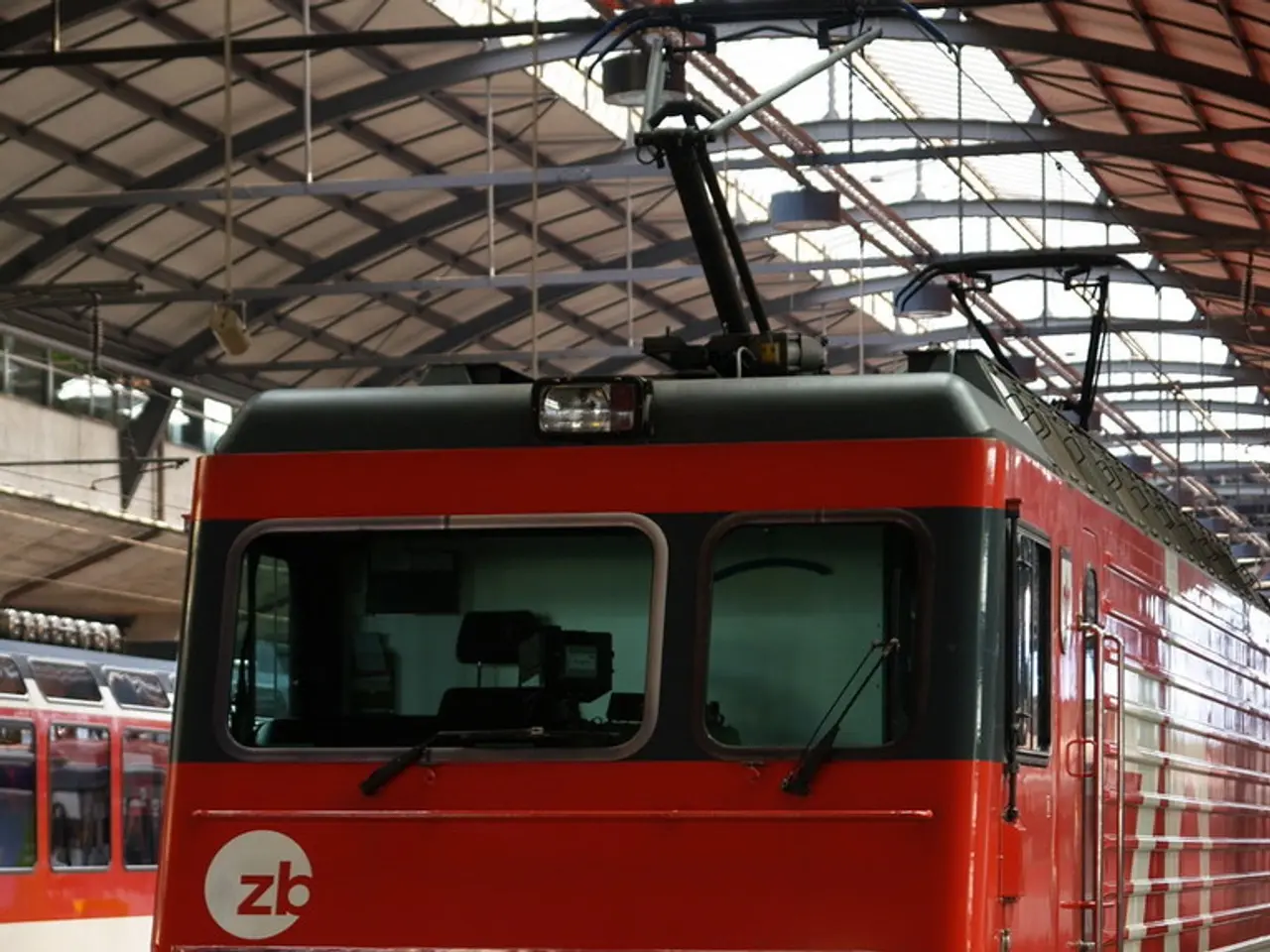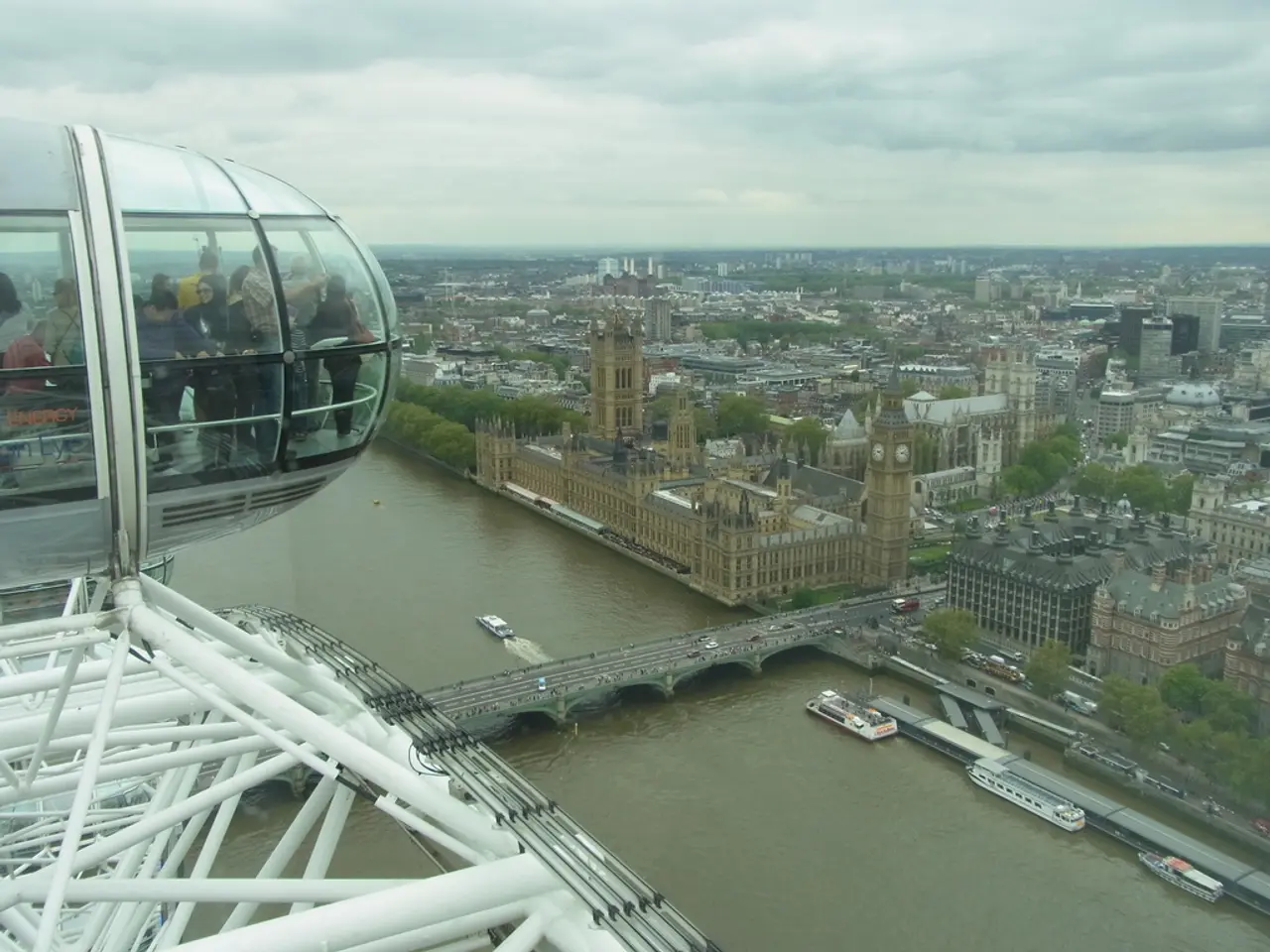Portugal's Rail Strike: Unions Demanding Better Wages and Working Conditions
Labor Dispute Leads to Nationwide Walkout in Portugal
Social Media: Facebook, Twitter, Whatsapp, Email, Print, Copy Link
A strike that took place on Wednesday has grinded Portugal's rail traffic to a halt. As confirmed by José Manuel Oliveira from the Fectrans union, a large rail union, the suspension of traffic blanketed the entire nation due to the near-unanimous consensus among employees. Fourteen unions in total had initiated the walkout, aiming for salary boosts, improved working conditions, and more.
The national railway corporation CP cautioned passengers about "severe disruptions," declaring, "CP cannot assure train service, particularly from May 7 to May 9." The company warned that additional strikes from other unions might extend these disruptions to May 14. On average, about 700,000 people travel by train in Portugal daily.
On Tuesday, the Portuguese government encouraged unions to cancel the strike. It proposed offering a financial package of 5.75 million euros to cover salary enhancements. However, the government's efforts have not yet yielded a positive response from the unions, according to Miguel Pinto Luz, the minister responsible for transportation. On the heels of early parliamentary elections slated for May 18, the government finds itself constrained from making any further moves, and criticized the demonstrations as a "political strike."
Workers' Present Requirements
This strike in Portugal's rail sector focuses on several pressing demands:
- Enhanced Salaries: Workers demand a wage increase commensurate with living expenses, as they argue that current wage proposals fail to restore purchasing power. They also advocate for retroactive pay hikes to ensure wage parity with the National Minimum Wage since 2018[1][2].
- Scale Revamp: Employees seek the enactment of an agreement to restructure pay scales, as originally agreed upon[1][3].
- Government Mediation: Unions request that the government compel CP's management to follow through on exceptional measures outlined in an agreement agreed upon with the unions[1].
Unfortunately, negotiations have failed to produce a resolution, with the Ministry of Infrastructure and Housing declining to endorse specific measures in CP's proposed agreement[2].
Impact on CP and Public Transportation
The strike has generated considerable fallout for rail services in Portugal. A recent ruling by the Arbitration Tribunal means that essential safety and maintenance services will continue, but regular train service remains uncertain due to the absence of mandated minimum services during certain strike periods[3][4]. This has resulted in transportation chaos across the country, with urban lines in major cities such as Lisbon and Porto hit hardest[3].
- The community policy regarding the rail strike in Portugal has been a topic of General News, with unions demanding better wages and working conditions, causing Employment Policy to be under scrutiny.
- Miguel, the minister responsible for transportation, acknowledged the government's efforts to resolve the strike were unsuccessful, leading to a suspension of rail traffic throughout the nation.
- The prolonged rail strike in the industry has caused public-transit chaos, affecting approximately 700,000 daily commuters and generating severe disruptions in transportation.
- The Finance Ministry, in an attempt to prevent escalation, announced a financial package of 5.75 million euros to cover salary enhancements; however, its proposal has been met with rejection by the unions.
- The Employment Policy debates surrounding the rail strike have now moved into the realm of Politics, with many questioning the effectiveness of the current policy-and-legislation framework and calling for more engagement between unions and the government.
- Despite the ongoing protests and strikes, the future of rail services in Portugal remains uncertain, as negotiations between the unions and the government continue without resolution, impacting employment policy on multiple fronts.








